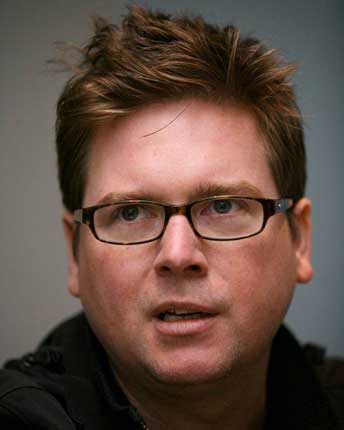Twitter founder quits to focus on next big thing
After five years, the entrepreneur is ready to invent the next internet sensation

The co-founder and public face of Twitter, Biz Stone, is to cease his work with the micro-blogging company and team up with his former colleagues in an attempt to invent the next big thing on the internet.
The 37-year-old entrepreneur is restarting the company that spawned Twitter five years ago – a venture called The Obvious Group – to experiment with making "systems that help people work together to improve the world".
Twitter, meanwhile, will have to do without the man who has been its creative director during a period of explosive growth, but before it has worked out how to turn a profit from the business. The company, which has built up more than 200 million users, publishing 2,200 of its 140-character "tweets" every second, will continue to call on Mr Stone as an adviser, it was announced.
Its co-founder's move is only the latest in the management hokey-cokey at Twitter, which has had four chief executives in its short life. Evan Williams, an early backer of Mr Stone's, stepped down from the post last October, saying he would remain involved as an adviser, but he has also now left the company. He will work with Mr Stone on The Obvious Group. Meanwhile, another co-founder and early chief executive, Jack Dorsey, returned to Twitter last year as product chief, although he is also simultaneously running a fast-growing start-up called Square. Twitter's current chief executive, Dick Costolo, is a former product executive at Google.
"My work on Twitter has spanned more than half a decade and I will continue to work with the company for many years to come," Mr Stone announced on his personal blog. "During this time – especially lately – it has come to my attention that the Twitter crew and its leadership team have grown incredibly productive. I've decided that the most effective use of my time is to get out of the way until I'm called upon to be of some specific use."
Mr Stone – who was once named Nerd of the Year by GQ magazine – has become semi-detached from Twitter in recent months. Earlier this year he was hired by The Huffington Post, the news and views website, to develop its "social impact strategy".
Explaining the decision to relaunch The Obvious Group, he said he had never been more excited about the potential of the internet. "The possibility to reach and connect expansive numbers of people fundamentally changes the nature of what's possible when it comes to building businesses on the internet," he said.
There is no shortage of money available from investors who might want to back the company's new projects, particularly given the track records of Mr Stone, Mr Williams and another Twitter co-founder Jason Goldman, who is also joining them.
Investors have bid up the value of Twitter itself to around $8bn (£4.9bn) on private share-trading markets, despite it never having turned a profit. Mr Stone announced the relaunch of The Obvious Group at the Aspen Ideas Conference in the Colorado ski resort this week, but remained tight lipped on what ideas they might have for new businesses.
Meanwhile, Mr Dorsey's second venture, Square, has secured $100m in financing from investors, valuing the company at more than $1bn. Square's plug-in device lets small businessmen and sole traders use their mobile phones to accept credit-card payments from other people. In April, Square said Visa, the credit-card payment firm, had invested an undisclosed sum in the company.
Join our commenting forum
Join thought-provoking conversations, follow other Independent readers and see their replies
Comments
Bookmark popover
Removed from bookmarks